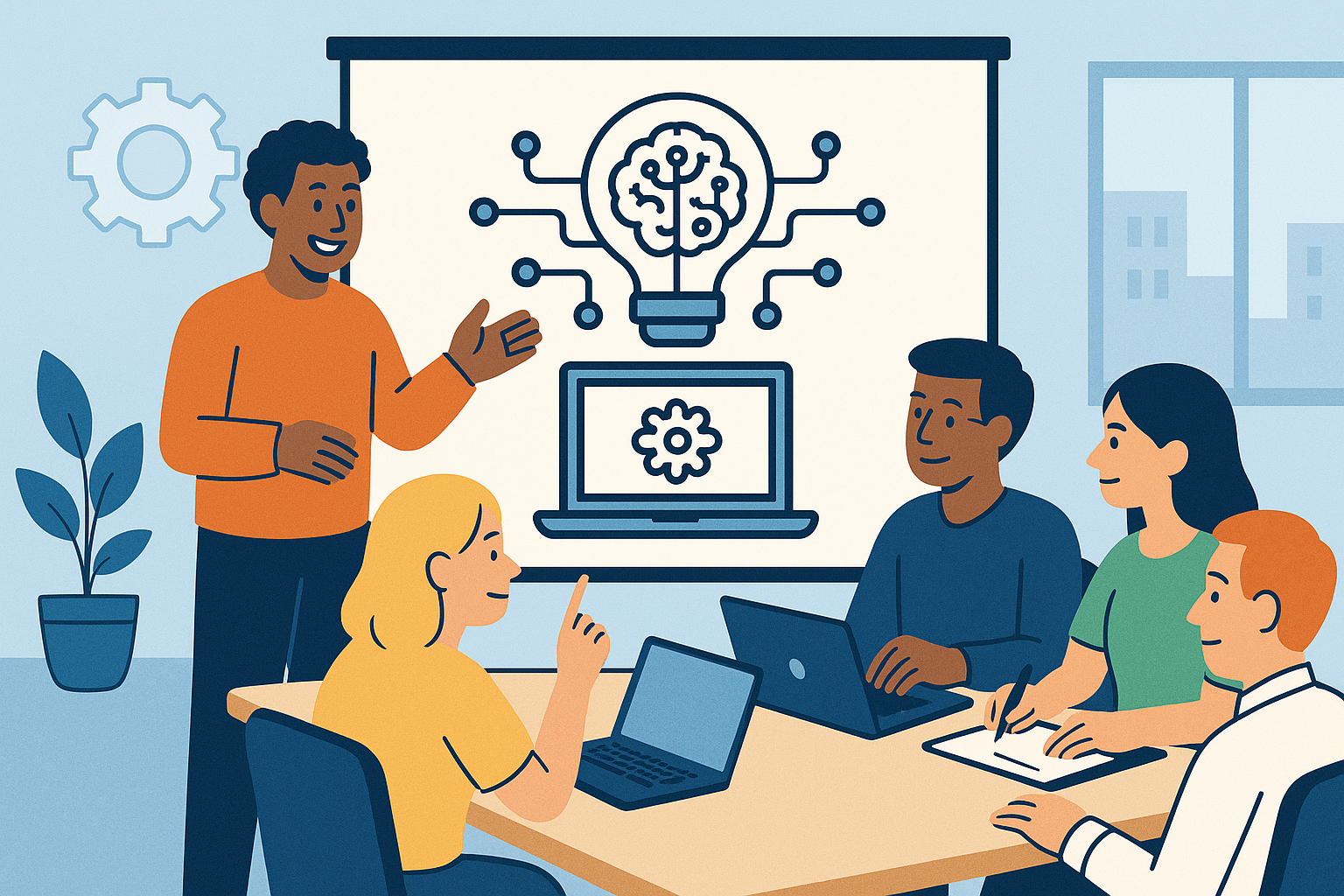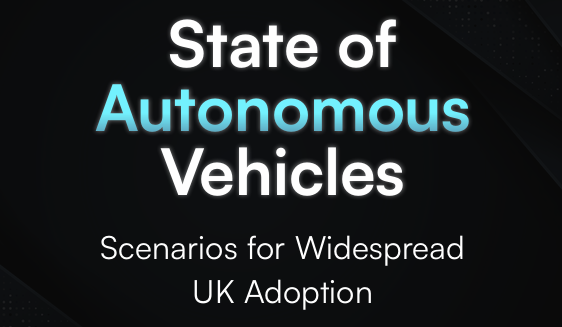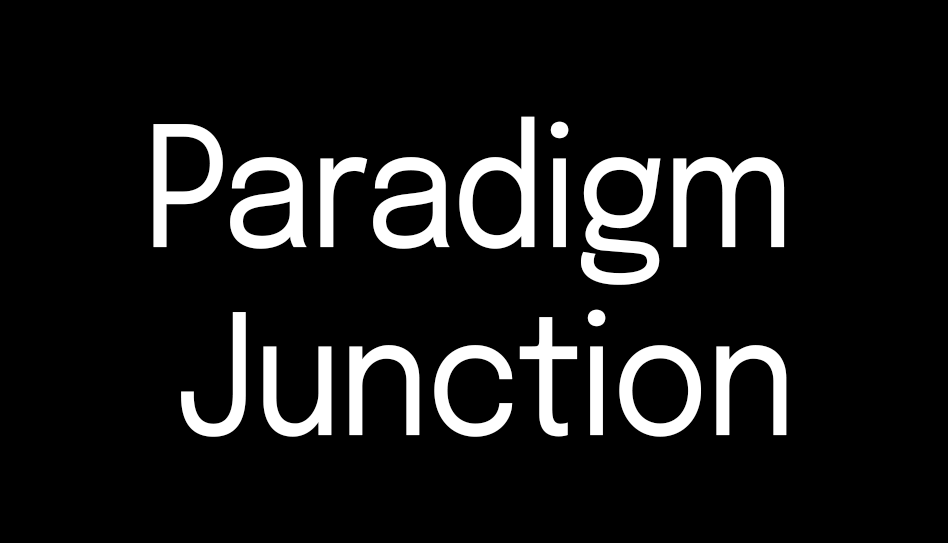
AI Investment and Sovereignty: Rethinking What Counts
The future of British sovereignty in AI will not be decided by where our servers sit. It will be decided by who builds, controls, and profits from them. The investment decisions that determine this are being made now.

How an AI workshop can unlock adoption across your office
How to run your own AI workshop. Pre-workshop: don't assume anything

Beyond the Billable Hour: How AI and Client Demands Are Reshaping Professional Services
For decades, legal, consulting and accounting firms billed by the hour. Labour time was linked directly to revenue. The approach worked when time was the main input and when work moved at human speed. In 2025, AI is beginning to change and weaken the link between worker-hours and output.

Live Translation: A Strategic Opportunity for British Professional Services Firms
Last month, Apple quietly announced something that should have every small business owner in Britain sitting up straight. Not another iPhone camera or fancy watch feature – but a live translation that actually works.

State of Autonomous Vehicles - June 2025 - Scenarios for Widespread UK Adoption
It has long been difficult to separate promise from reality, but with millions having now taken driverless rides in the US and China, AVs are no longer something of the future. The UK will start trials in London in Spring 2026. What does this mean for jobs and the way our cities are organised?

A Tale of Two ITies
A living collection of light, whimsical stories that show the challenges of integrating Corporate IT with the rest of the organisation

Infrastructure Flexibility in a Changing World: Lessons from Banking's COBOL Crisis
In an era of high business uncertainty - both technical and macroeconomic - preserving flexibility is more valuable than ever before.

State of Humanoid Robotics
Just as AI agents are rapidly automating knowledge work, physical automation through robotics represents the next frontier of labour transformation.

Finding The Right Problem To Solve - Hang On... I Know There Is A Document On This From Last Year
Identifying which problems are worth investing in is not as easy as it seems. Often it feels easier to prioritise something because a supplier is offering a snazzy solution. But what if you can’t shake the feeling that this doesn’t solve the problems that really plague your teams?

Digital Twins: Your Organization's Hidden Metrics Detector
At its most basic form, a digital twin is an advanced process map. By including details often left out of traditional process maps - like employee role descriptions and the structure of daily tasks - you can uncover an entirely new category of insights.

Building Resilience to Technological Change
The path forward isn't about perfectly predicting technological shifts, but by building an organization that's curious and ready to adapt. Competitive advantage is a function of the world that we operate in: as that shifts, your strategy and edge must too.

Getting Started with AI Agents: A Guide to using AI for Research
In 2025, AI tools are advancing beyond simple question-and-answer chatbots. Now, multi-stage tasks can be delegated to AI models that will produce and execute plans to create entire research reports. This marks the rise of AI agents. But what is an AI agent, and how could you use them?

Buying Generative AI in Government
PUBLIC and Paradigm Junction have teamed up to build this practical guide for public buyer and suppliers to effectively navigate the process of 'Buying GenAI'. Examining critical factors of the procurement process - defining scope, securing finance, evaluating suppliers, defining IP, managing contracts - this report provides usable insights into what makes GenAI different and how Government can engage with it confidently.

Encouraging Safe AI Adoption From The Top Down: A Principles Based Approach
Principles, communicated from the top of an organisation, can have two major benefits in leading employees to explore and adopt positive behaviour changes, like the integration of GenAI tools into their workflows. Principles communicate values and boundaries. They are particularly useful in situations where employees must learn by doing as they can provide employees with a north star when navigating unfamiliar situations. Whilst alone they aren’t sufficient to mitigate all harms or encourage everyone to make a change, they are a key part of most behaviour change programmes leading to the adoption of new technology.

Introduction to Futures and Foresight for Emerging Technologies
No one is sure about how the capabilities of AI will develop, let alone how business, government and society will respond to them. But this doesn’t mean that you should stand still. Tools exist for helping decision makers make smart choices in the face of uncertainty about the future, where traditional forecasts are liable to falter.

Computers aren't supposed to be able to do that
18 months ago he would have been right. To me, it had stopped being remarkable they now can.

Generative AI: Where should businesses be focusing? Impacts across sectors and functions
It is clear that Generative AI, particularly Large Language Models (LLMs) are going to disrupt many sectors and functions significantly. However, measuring this impact, much less prioritising scarce resources between teams clamouring for something new, remains hard.

GenerativeML: What questions should boards in each sector be asking?
Generative ML has already shown it will be capable enough to disrupt established ways of working, jobs and entire industries. These systems are already able to produce high quality text, images and video. Production quality code, video game worlds, whole applications and even the ability to manage and execute tasks look near on the horizon. We have compiled a detailed list of key questions, sector by sector, that boards and management teams should be asking now, to avoid being caught out in the coming months. Whatever your industry or position there are 6 lines of questioning you should be thinking about: (1) Better serving customers (2) Skills and employment (3) Communications strategy (4) Intellectual property (5) Liability and assurance (6) Decentralise or centralised
.jpg)
Introduction to Paradigm Junction
Get to know us and how we can help

Apple Vision Pro - Seeing The World Through A New Lens
The Vision Pro isn’t only an AR/VR play from Apple - it’s a first bid to equip us with the tools we will want to be using in the future world of work.

Models and Beauty Contests
In the face of a changing world, refusing to act until you can be sure of the outcome is a decision in and of itself. Sometimes wait and see is the correct decision. Other times, it is an invitation to competitors to steal a march.

Lightning Rounds - New Technologies That Could Change the Built Environment
We gave a presentation to a group of real estate investors. The question: What technology might be interesting if you are imagining how our commercial buildings will be radically different in a decade. Think internet shopping and fulfilment centres.

Interview with Hays - The Impact of AI on the Future of Work
On Thursday I was interviewed by Yvonne Smyth, who leads Hays’ HR & Legal practice in the UK & Ireland. The event was for several hundred senior leaders in HR teams across their network as part of a series of Hays Insight webinars, building on the 2023 report, What Workers Want: Working with AI focusing on GenerativeAI and the Future of Work. We had five main areas of conversation:

ChatGPT & AI: Actions For Businesses Who Have Decided Not To Build Something In House
Companies that we speak to are all asking variants of the same question: I have decided I am not going to build anything in house, so, what should I do? We believe there are 4 key priorities for organisations, whether private or public, in this position.

Avoiding Common Pitfalls of ChatGPT - Advice for HR Professionals
Lots of businesses are experimenting with ChatGPT to automate time consuming workflows. Whilst there will be enterprise versions before too long, at present only a small group of Early Adopter companies have been granted access to Microsoft’s full suite of tools. This leaves most employees wondering whether it is safe to use ChatGPT for tasks in their job. For those responsible for setting workplace policies, like many HR teams, this responsibility extends to the wider organisation.

GenerativeML: What questions should government be asking themselves
We have compiled a detailed list of key questions, activity by activity, that Senior Civil Servants & Non-Execs should be asking now, to avoid being caught out in the coming months.

Building a ChatGPT replacement without OpenAI
In the last article in this series we discussed why some companies are looking to build their own Generative AI chatbots to keep their proprietary data safe, customise responses to their own business needs and save money. A recently leaked memo from a Google researcher highlights the problem precisely - open source models now are good enough that paying for a private model (from Google, or OpenAI) isn’t worth the expense. Whilst the focus has been on computation costs, the impact in terms of data retention and customisation is just as large.

How to get the benefits of ChatGPT without sending your commercial data to OpenAI
Lots of businesses we speak to want to harness the power of GenerativeAI, but integrating Large Language Models (like the one ChatGPT is based on) into their work flows presents at least as many problems as solutions. Where does your data go?

Why Are We Called Paradigm Junction?
Choosing a name is one of the first challenges a new company faces and the advice is always the same: don’t get bogged down just pick something and get to work. Thankfully, the new suite of Generative AI tools made choosing much quicker and prevented us from getting obsessed over a word or an idea that someone else was already using. Here is how we went about it:

GenerativeAI and the Great Jobs Unbundling
One of the best things to come out of the AI Revolution might be that we realise how much more work we do than is in our job descriptions, and start recognising each other for it. In recent weeks I have grown frustrated at all the uncritical discussion of which jobs will be automated out of existence first: lawyers, software engineers and admin support staff alternately appear at or near the top of the lists. This is based on the ability of AI systems to automate an ever increasing array of outputs at near, or beyond, human levels of performance. Seems reasonable that it will spell the end of our jobs, right? Wrong.

What to do now ChatGPT Can Ace Exams
Assessing students has always been a key aspect of education, but recently the release of Large Language Models has caused concern amongst educators that existing approaches will not work. One such model, ChatGPT, is able to pass standardised tests and perform well on continuous assessment tasks like essays. This raises the question of how we should adapt our approach to assessments. The first thing to recognize is that ChatGPT is not a replacement for traditional assessments but rather a tool that can raise the baseline standard of attainment. Like a calculator or a Google search, it can help students access information more efficiently and accurately, but it does not replace the need for critical thinking, analysis, and creativity. As with the arrival of prior new tools, we need to change how we assess. This is a challenge the education sector has faced many times: responses which we used to credit, like learning lists of capital cities or doing certain types of numerical sums are no longer assessed, or noteworthy. The key difference this time is the pace of change. We need to be explicit about why we are examining

Digital Pounds - Part 1: Introduction of a new CBDC
Last month, HMT and the BoE released a consultation on The Digital Pound, a Central Bank Digital Currency (CBDC) that would allow individuals to hold money as a direct claim on the central bank, like banknotes.

Digital Pounds - Part 2: The Case For Innovation
The paper is strongest when arguing that there needs to be some form of public money in circulation. Put simply, the state monopoly over issuing currency is non-negotiable.

Digital Pounds - Part 3: Financial Stability
The paper’s discussion of this risk can be summarised as: possible impacts in both directions with risks which will be mitigated.

Digital Pounds - Part 4: Digital Identities
A distinct class of challenges arises when considering the link between individuals and accounts.
-139050.jpg)
Digital Pounds - Part 5: Fraud and Friction
A related issue arises for wallet providers who, according to the consultation, would be responsible for fraud prevention rather than BoE who would simply maintain a central ledger.

Digital Pounds - Part 6: International Consequences
I recently listened to former BoE Deputy Governor Paul Tucker discuss his new book on the Macro Musings podcast.

Digital Pounds - Part 7: Conclusions for CBDCs
The consultation paper is a thought provoking read.

